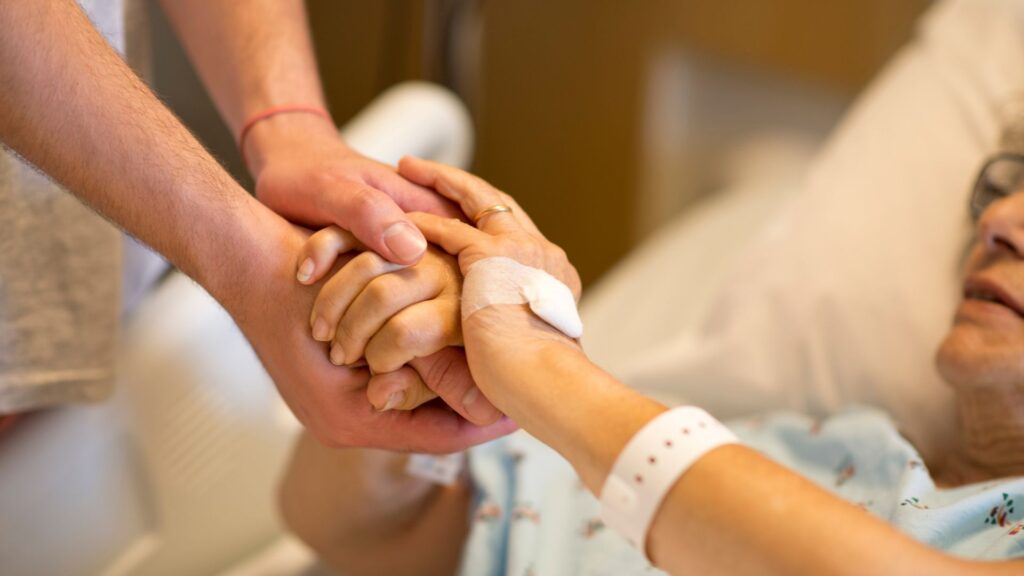
Why Physician-Led End-of-Life Planning Is Essential in Modern Healthcare
At Empowered Endings Foundation, we believe end-of-life care should begin long before the final days. That belief is rooted in our mission to ensure every individual has access to compassionate, timely, and thoughtful care—without financial or systemic barriers. We believe the professionals who work in this space, especially physicians, are uniquely positioned to start the essential conversations that shape choices, protect dignity, and shift the entire paradigm of how we approach life’s final chapter.
What Physician-Led End-of-Life Planning Looks Like in Action
What does it look like when doctors don’t just treat illness but help patients prepare for life’s final season with compassion and clarity? Physician-led planning means more than providing paperwork. It involves creating safe spaces for honest dialogue, explaining options in plain language, and guiding patients to consider what quality of life means to them.
Whether it’s coordinating a family meeting, revisiting advance directives during annual exams, or collaborating with end-of-life doulas and care teams, these everyday moments lay the foundation for meaningful preparation.
It’s in these quiet, often overlooked exchanges that empowerment begins—not through urgency, but through mutual understanding. This proactive approach can shift a patient’s entire experience, allowing them to navigate the end of life with confidence and peace.
Patient Stories: Why Physician-Led Planning Builds Trust and Clarity
The impact of physician-led planning isn’t measured only in data—it’s heard in the voices of those who’ve experienced it. Patients consistently report that having these conversations early brings peace of mind—not just for them, but for their loved ones.
One patient shared, “Having my doctor walk me through the process made all the difference. I didn’t feel rushed or judged—I felt seen.”
This kind of feedback reflects a growing movement in medicine: one that values relationships and trust as much as clinical outcomes. These testimonials remind us that planning is more than documentation—it’s a profound act of care.

How Physicians Can Advocate for Compassionate End-of-Life Choices
Doctors are often seen as the people who save lives, but some of their most powerful work happens when they help patients prepare for death with clarity and choice. That role carries incredible responsibility—and even more potential for healing.
Physician-led end-of-life planning shifts the focus from reactive care to proactive conversations. It empowers patients to ask questions, express fears, and document wishes long before they’re in a hospital bed. These conversations can cover everything from code status to palliative care preferences, religious and cultural beliefs, and emotional support needs.
When doctors and clinicians initiate these discussions early, they help prevent unnecessary interventions, reduce suffering, and preserve patient dignity in powerful ways.
Why Patients Trust Doctors to Guide End-of-Life Planning Conversations
In moments of vulnerability, patients often turn to the people they trust most: this often includes their doctors. That trust is why physicians are uniquely positioned to lead end-of-life planning conversations—not only from a medical standpoint, but from a human one.
Studies have shown that patients are significantly more likely to complete advance directives and engage in meaningful planning when these conversations are initiated by their physician. When trusted healthcare professionals normalize planning as part of routine care, patients feel safer, more supported, and more willing to express their wishes.
By integrating these conversations into wellness visits, serious illness diagnoses, or hospital admissions, physicians help normalize planning and relieve families of
emotional burden later on. In doing so, they offer a tremendous gift: peace of mind.

Fixing the Gap: End-of-Life Training for Physicians
Despite their key role, many doctors and clinicians don’t receive formal training in how to talk about end-of-life care. Medical schools often prioritize life-saving procedures over life-honoring conversations. As a result, many doctors feel ill-equipped to guide patients through these emotional and ethical decisions.
At the Empowered Endings Foundation, we’re working to change that.
Through continuing education, partnerships, resources, and community-based programming, we help medical professionals develop the language, empathy, and understanding of available options so they have all that’s needed to support patients and families. Our goal? Make end-of-life planning as standard as a flu shot or blood pressure check-in.
Creating Trust in End-of-Life Care Through Physician-Led Planning
Trust doesn’t happen by chance—it’s cultivated through compassion, communication, and care. When physicians lead with openness and empathy, they help build a healthcare system that earns patient trust. This is especially vital for marginalized communities who may have experienced medical trauma or discrimination in the past.
By centering patient values, inviting families into the discussion, and respecting cultural or spiritual traditions, physician-led planning becomes not just a medical task—but a form of healing and relationship-building.
We envision a future where every person has the opportunity to approach the end of life with dignity, peace, and a clear plan in place. You can be part of that change—begin by working with a physician, clinician, or end-of-life professional you trust to create an end-of-life plan that ensures your wishes will be honored.


